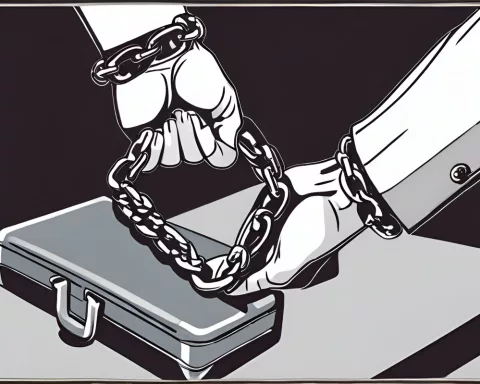South Africa’s Post School Education and Training (PSET) sector is getting ready for the 2024 academic year, with plans to expand access to education and improve its quality. The sector is celebrating the impressive national high school pass rate of 82.9% and is determined to provide more opportunities for students. The National Student Financial Aid Scheme continues to support students from low-income households, and the sector is preparing for the 2024 academic year with the creation of several committees and monitoring instruments. Overall, South Africa’s education sector is striving for a future where every student has access to quality education.
Planning for the 2024 Academic Year in the Post School Education and Training Sector: South Africa’s Post School Education and Training (PSET) sector is preparing for the 2024 academic year, with plans to widen access to educational opportunities and enhance the caliber of education. The sector is poised to provide further opportunities for high school graduates who have achieved an impressive national pass rate of 82.9%. Additionally, the National Student Financial Aid Scheme continues to support students from working-class and low-income households.
South Africa’s Post School Education and Training (PSET) sector, under the leadership of Minister Blade Nzimande, is gearing up for the 2024 academic year. The sector’s readiness to welcome a fresh batch of high school graduates and its consistent efforts in achieving the National Development Plan’s objectives are evidence of the substantial progress being made in the country’s education realm.
Celebrating the Achievements of 2023’s High School Graduates
The 2023 academic year witnessed an impressive national high school pass rate of 82.9%, an uplift of 2.8 percentage points from the previous year. Out of the 715,719 full-time students who sat for the National Senior Certificate exams, 572,983 students triumphed. This upward trend in scholastic accomplishments is encouraging, with the PSET sector poised to provide further opportunities for these students to flourish.
Honoring 30 Years of Democracy and Educational Progress
As South Africa commemorates its 30-year democracy milestone, the Department of Higher Education and Training has made considerable progress in widening access to educational opportunities, enhancing the caliber of education, and rendering the system more effective and efficient. The primary emphasis remains on delivering quality education and extending access to demographics who previously lacked access to post-school education and training.
Educational Institutions: Pioneers of Growth
Universities, Technical and Vocational Education and Training (TVET) colleges, and Community Education and Training (CET) principals play a pivotal role in the education sector, acting as catalysts for growth. With universities on track to meet the National Development Plan’s enrolment target of 1.62 million by 2030, and plans to substantially boost TVET college enrolments towards an aim of 2.5 million, the sector is experiencing significant growth.
The initiative to widen access also encompasses the gender and racial composition of the student body. The enrolment of black African students in public universities constitutes over 80 percent of the total student enrolment – a noteworthy milestone in the transformation of South African higher education.
The University of Science and Innovation: Cultivating Advanced Knowledge
In keeping with the theme of innovation, the founding of the University of Science and Innovation in Ekurhuleni will offer students the opportunity to train in high-impact and cutting-edge technological innovation. This initiative will serve both current and future industries and demonstrates the government’s dedication to delivering education that caters to the labour market’s needs, particularly in the fields of science, engineering, and technology (SET).
The National Student Financial Aid Scheme: A Significant Support System
The National Student Financial Aid Scheme (NSFAS) continues to be a mainstay of support for students from working-class and low-income households. With over 70 percent of university students and over 90 percent of TVET college students benefiting from NSFAS bursaries, the scheme represents the government’s dedication to shattering the cycle of inter-generational social inequality and poverty in access to post-school education and training.
Despite obstacles, the scheme’s disbursements have grown from R21.4 million in 1991 to nearly R48 billion in 2023. Concurrently, efforts are being made to reclaim funds from past beneficiaries of the scheme, ensuring its ongoing sustainability for future students.
Coordinating Efforts for the 2024 Academic Year
In order to ensure a seamless commencement of the 2024 academic year, comprehensive plans have been established, including the creation of several committees and monitoring instruments. From the establishment of an Operations Room and Observatory to oversee potential registration issues, to the activation of a Central Application Clearing House for students who have not yet secured a study place, the sector is meticulously preparing.
The PSET sector is at an intriguing crossroads. With ambitious plans for the 2024 academic year, the commitment of the education department, and the unwavering support of the NSFAS, South Africa’s education sector continues to build on its achievements, aiming for a future where every student has access to quality education. The 2024 academic year is anticipated to be another landmark in the nation’s educational journey, a testament to the tireless efforts of all sector stakeholders. The shared determination to create a conducive learning environment, supplemented by innovative education strategies, holds promise for a bright future for South Africa’s youth.
1. What is South Africa’s Post School Education and Training (PSET) sector preparing for?
The PSET sector is preparing for the 2024 academic year, with plans to widen access to educational opportunities and enhance the caliber of education.
2. What is the national high school pass rate in South Africa?
The 2023 academic year witnessed an impressive national high school pass rate of 82.9%, an uplift of 2.8 percentage points from the previous year.
3. What is the role of universities, TVET colleges, and CET principals in the education sector?
Universities, TVET colleges, and CET principals play a pivotal role in the education sector, acting as catalysts for growth. With universities on track to meet the National Development Plan’s enrolment target of 1.62 million by 2030, and plans to substantially boost TVET college enrolments towards an aim of 2.5 million, the sector is experiencing significant growth.
4. What is the National Student Financial Aid Scheme and how does it support students?
The National Student Financial Aid Scheme (NSFAS) continues to be a mainstay of support for students from working-class and low-income households. With over 70 percent of university students and over 90 percent of TVET college students benefiting from NSFAS bursaries, the scheme represents the government’s dedication to shattering the cycle of inter-generational social inequality and poverty in access to post-school education and training.
5. What is the University of Science and Innovation and what is its significance?
The University of Science and Innovation in Ekurhuleni will offer students the opportunity to train in high-impact and cutting-edge technological innovation. This initiative will serve both current and future industries and demonstrates the government’s dedication to delivering education that caters to the labour market’s needs, particularly in the fields of science, engineering, and technology (SET).
6. How is the PSET sector preparing for the 2024 academic year?
To ensure a seamless commencement of the 2024 academic year, comprehensive plans have been established, including the creation of several committees and monitoring instruments. From the establishment of an Operations Room and Observatory to oversee potential registration issues, to the activation of a Central Application Clearing House for students who have not yet secured a study place, the sector is meticulously preparing.










